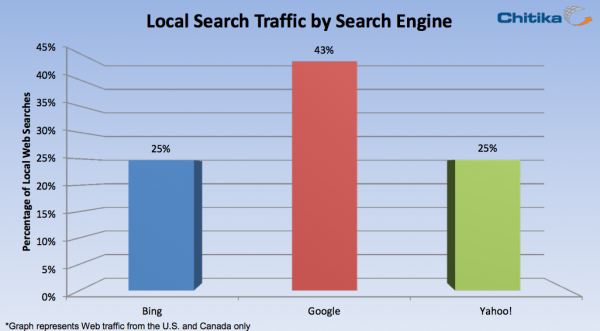Long‐Tail Keywords: The ‘Secret’ to Getting TONS of Search Traffic

With rising in competition in the digital marketing landscape, it is hard to make your mark on the internet using conventional SEO strategies. Today, you need to take the voice search and other SEO parameters into account to make a considerable impact on the online market. A good amount of focus on keyword research and analysis is the first right step towards a successful online business. Recent studies show that long-tail keywords are responsible for nearly 70% of the total searches on the internet.

Here are 10 main reasons why long-tail keywords are the ‘secret’ to getting tons of search traffic.
Understanding Long-Tail Keywords
As the name suggests, the long-tail keywords are the ones that are longer than conventional keywords. The conventional keywords usually contain less than 4 keywords, while the long-tail keywords contain 6-7 keywords. Most search engines rely on the accuracy and relevancy of the keywords to produce search results. Therefore, a higher number of keywords produce more relevant searches. People usually leverage the long keywords when they are looking for highly specific and factual information.
Importance of Long-Tail Keywords
The long-tail keywords are extremely important for a growing online business. These keywords are generally cheaper compared to the conventional short keywords. Also, they can produce extremely focused and sales-ready leads to your business. Some key benefits of the long-tail keywords include.
- Effective for On-Page Optimization
Every SEO specialist knows that there are mainly two different modes in which he/she needs to optimize the website for better conversion. The specialist needs to focus on both on-page as well as off-page optimization. The long-tail keywords can help the specialist effectively raise the stats for on-page optimization without a lot of extra effort. A study from Statista shows that 50% of your efforts for SEO on the long-tail keywords should lie on on-page optimization.
- Optimized for Voice Search
The use of voice search is constantly rising today. The most popular voice assistants Google Assistant, Siri, Alexa and Cortana are quickly gaining popularity on their native mobile as well as desktop interfaces. According to a recent study, voice search is one of the biggest SEO trends that the specialists focused on for 2017.

- Addition of Relevant Content
The best part about long-tail keywords is that they fit naturally into the content. You cannot ‘stuff’ a lot of long-tail keywords into the content without losing its overall grammatical structure. The use of multiple long-tail keywords preserves the overall readability of the content while still allowing you to leverage the perks of the best SEO practices.
Note: The use of long-tail keywords is effective only when you have a long list of them. Using the same long-tail keyword hampers the overall readability of the content significantly.
- Great Conversion Rates
The conversion rates of the long tail keywords are significantly better than the conversion rates of conventional shorter keywords. Studies show that the long-tail keywords have a conversion rate of up to 36%! Better conversion rates are a direct result of more sales-ready leads coming into the pipeline. With long-tail keywords, you have a better chance of targeting people who wish to purchase your product/service. The right tactics allow you to easily segregate the audience which is looking at your offer only for research and the one that is looking at it for purchase.
- Affordable Prices
The number of searches directly related to long-tail keywords is not as high as the ones related to the shorter ones. Therefore, the long-tail keywords are usually available at a smaller price tag on the Google AdWords platform. The affordable prices and excellent conversion rates come together to produce an excellent return on investment for the business.
Tips for Performing Your Own Long-Tail Keyword Research
Before we reap the benefits of the long-tail keywords, we need to perform the right kind of keyword research. Focused keyword-research can help you look for the most relevant and affordable keywords for your business. It can also help you evaluate the competitive landscape of the market effectively.
- Search Keywords Based on Ideas
Searching keywords based on particular themes is a good idea to start the research. As you refine your search further you can branch it to involve other methods of research too. For example, you are searching for keywords for a toy shop on the internet. To do this, you can easily search for keywords that include the word toy. Now, you should look at your collection and add keywords naturally to it. If you have soft toys, you can build the keyword to soft toys now. Furthermore, the keyword string at the end of your research will look something like, ‘Yellow giraffe stuffed soft toy with natural colours for sale.’
- Look for Keywords that Fit Naturally into Your Content
Keywords that fit naturally into your content increase the overall readability of your content by a significant amount. With the right type of keywords, you can write relevant blogs and guest posts for different websites. These long tail keywords can also help you in landing pages as well as ad campaign designs. One of the best perks about using the long tail keywords is that they are effective even at a low density. Instead of using the same keyword twice or thrice in the content you can use variations to increase the readability of content.
- Focus on Local Search Results
Research suggests that as much as 43% of the total search queries on Google have a local search intent. Therefore, you must focus on keywords that help you gain more business locally. This type of practice is extremely helpful for businesses that are demographically challenged. For example, if you are creating a website that offers transportation services in Denver, you need people from Denver to see it.

- Stack Keywords Together
Instead of creating long-tail keywords within a single attempt, you can do so by stacking shorter keywords together. Look for the most relevant short keywords and stack them together to create a long-tail keyword for your business. For example, if you want to create long-tail keywords for a transportation business in Denver, your target keywords include Denver and transportation. You can couple these to create keywords with relevant adjectives that look like the following:
- Cheap Denver transportation services for visitors
- Most affordable transportation services in Denver for tourists
- Denver to Vail shuttle services directly from the airport
- Use Extremely Simple Language
The use of simple language in keywords increases the overall readability of the content. The simple language increases customer retention as well as acquisition. Use shorter words and concise language along with facts and figures to add value to the content. The development of ‘How-To’ content is also favourable in the market. Balance the amount of promotional and informational content effectively to lure the customers in for your business.
Tips on Using the Long-Tail Keywords Effectively
Here are a few tips that will help you reap the benefits of long-tail keywords in the most influential manner.
- Use Plurals of Keywords
The use of plural words in your keywords will help you optimize the keyword further. For example, instead of developing a keyword like ‘Soft giraffe toy for child’ develop one that says ‘Soft giraffe toys for kids.’ Small differences like this can influence your campaign a lot.
- Explore Multiple Long-Tail Keywords
Instead of using the same long-tail keyword, use the variation for the keyword at different locations within the content. Modifying the long-tail keyword is comparatively simple since they are more flexible. Also, instead of using the highly-competitive keywords discover the more unconventional ones and focus on the graphical appeal of the content.
- Balance the Use of Long and Short-Tail Keywords
Relying exclusively on the long or short-tail keywords is unwise. Instead, try establishing a balance between them to get the best results.
Conclusion
We know that the quality of content plays an important role in getting more search traffic. Similarly, we cannot ignore the quantity of content that you post. A study from HubSpot suggests that the traffic index of a website increases exponentially with an increase in the blogging frequency.

Long-tail keywords can help you build a strong conversion tunnel due to its relevancy for search results. While the overall number of hits is less than conventional keywords, the number of conversions rises with an increase in the definition of a keyword. The long-tail keywords also affect the voice search results directly due to increase definition and relevancy. Studies show that the total voice assistant market has already raced past the 30-million mark back in 2017.
Effective long-tail keywords lay a strong foundation for your digital marketing strategy. Incorporate research strategies as the part of your content marketing plans to increase the effect of your ads. Increase the consistency of posting content to reap the benefits of best marketing strategies and test more plans effectively.

